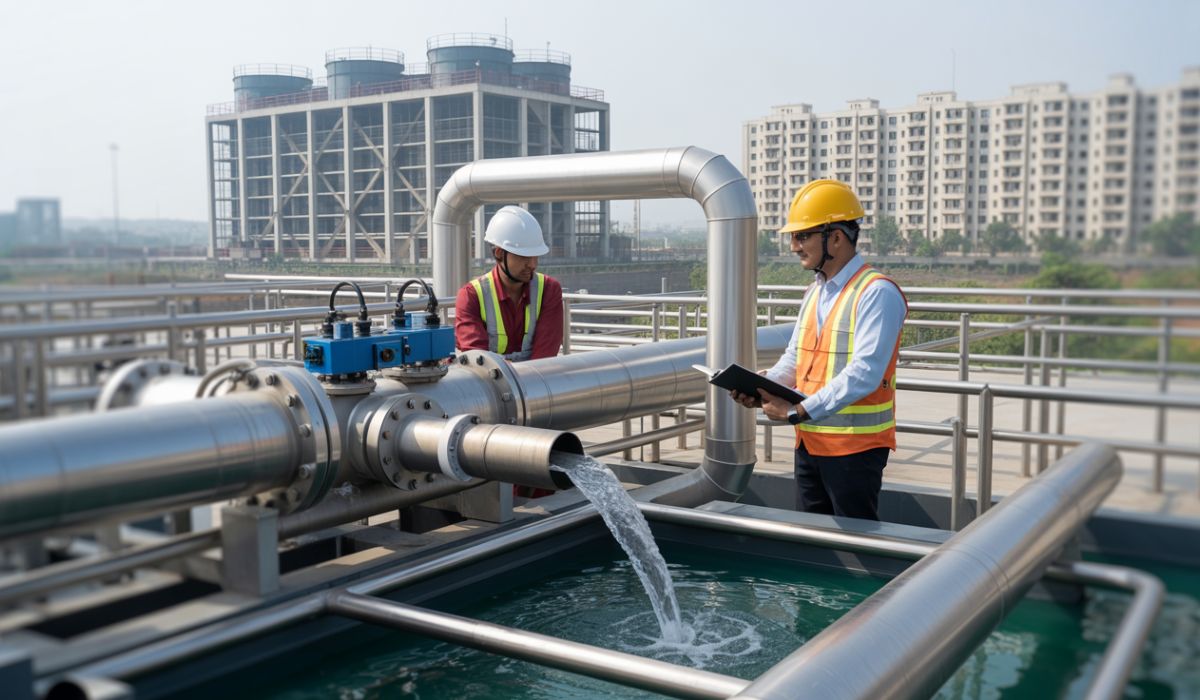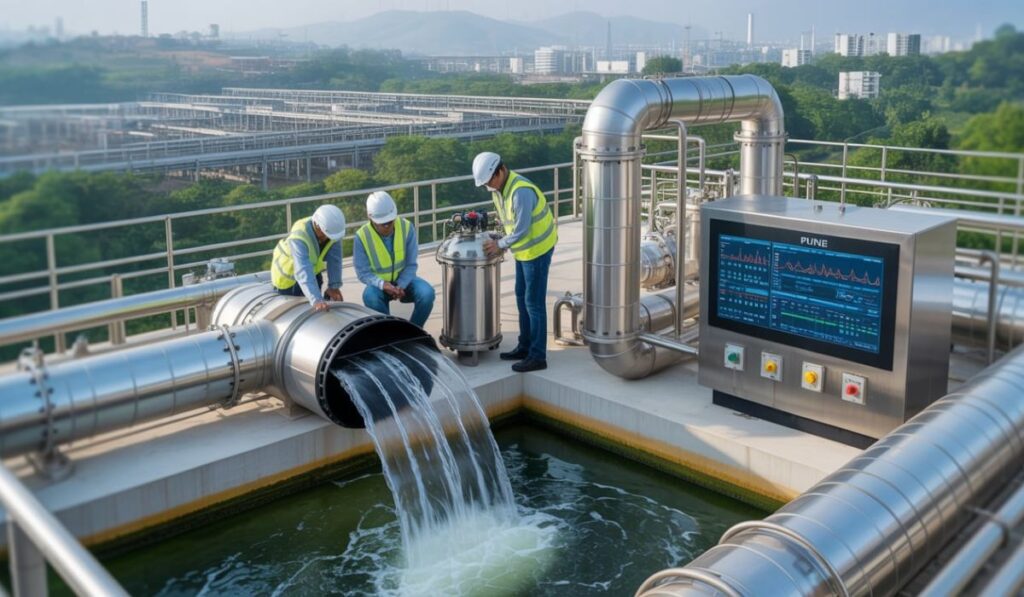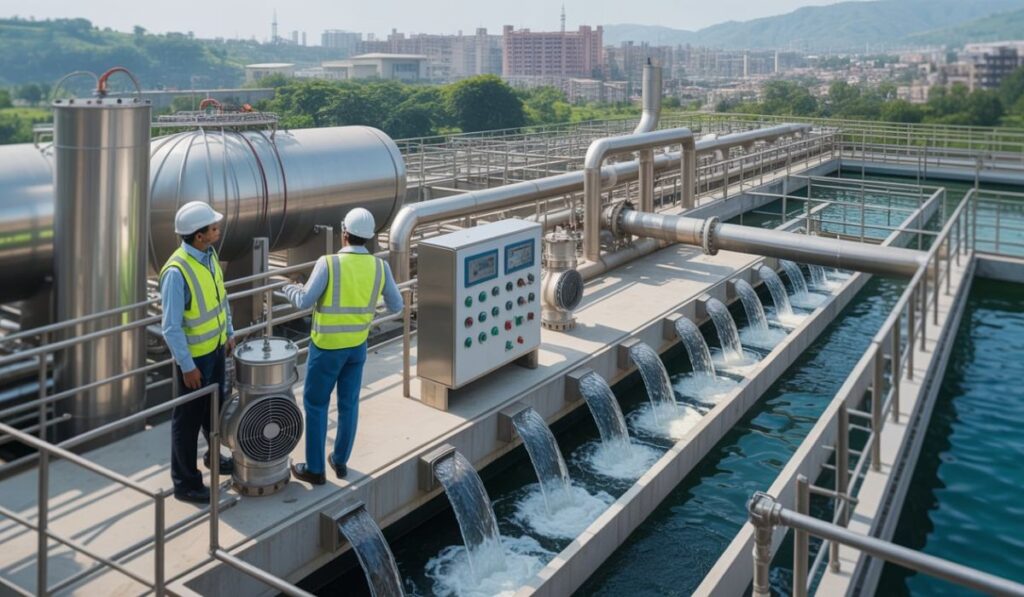-
Email us at:
info@weltreatsystems.com -
Call us on:
020 - 41228334 - Download Brochure

24
Oct 25
Clean water is no longer just a basic necessity — it’s a critical operational requirement for homes, industries, housing societies, hotels, hospitals, and even smart infrastructure projects in modern cities like Pune. Whether you’re looking for drinking water purification, industrial effluent management, or complete wastewater recycling, choosing the right water treatment partner can make all the difference.
But with so many providers in the market, how do you know which one is truly capable — and which one is just “selling equipment”?
This expert guide will help you evaluate and confidently choose the best water treatment company in Pune, based on practical insights shared by industry professionals, including specialists at Weltreat Systems, a trusted solutions provider in the field.
Why Choosing the Right Water Treatment Partner Actually Matters
The wrong choice can lead to:
- Repeated breakdowns and high maintenance costs
- Non-compliance with Maharashtra PCB norms
- Risk to employee/consumer health
- System failure during critical operations
- Water wastage and zero future expansion support
But the right partner ensures:
✅ Long-term operational peace of mind
✅ Regulatory compliance without stress
✅ Sustainable + cost-optimized systems
✅ Zero dependency on tanker or external sewage disposal
✅ And most importantly — safe water that you never have to “worry about” again
What Type of Solutions Do Water Treatment Companies Offer?
A professional company should offer complete, end-to-end solutions, not just install one machine and disappear.
Here’s what an ideal water treatment company in Pune should be able to provide:
- Drinking & process water purification (RO, UV, UF, softening)
- Industrial wastewater & effluent treatment (ETP, ZLD, recycling solutions)
- STP for residential & commercial sewage treatment
- Customized chemical treatment & filtration setups
- On-site AMC, retrofitting & lifecycle maintenance
- Energy-efficient + automation-enabled systems
- Consultation for PCB / NGT compliance
Experts at Weltreat Systems strongly recommend choosing companies that solve problems — not just install equipment.
5 Factors You MUST Evaluate Before Finalizing a Water Treatment Provider
1. Do They Understand Your Specific Application?
Every industry/home cluster is different. A dairy effluent is not the same as hotel wastewater.
A good provider should custom design, not force a standard machine.
2. What Technology & Engineering Standards Do They Use?
Check for:
- Latest RO/UF/MBBR/MBBR-ZLD/STP tech
- Low energy consumption systems
- IoT/automation support
- Low chemical dependency and O&M simplicity
3. Do They Offer Long-Term Support & AMC?
Any company that only wants to “install and leave” — is a red flag.
Weltreat engineers recommend asking specifically about AMCs and emergency breakdown handling.
4. Are They Approved / Experienced in Compliance?
Especially for industries — MPCB, NGT, and pollution control compliance is non-negotiable.
Ask if they have handled similar compliance projects already.
5. Do They Handle Both Water and Wastewater?
A complete water management partner is generally more future-proof than someone who only does one part of the job.
Critical Questions You Should Ask Before Hiring
✅ “Will you customize or provide a standard solution?”
✅ “Do you offer operation & maintenance (O&M) or AMC support?”
✅ “Have you deployed systems in my type of industry/project before?”
✅ “Can you help with compliance & documentation if needed?”
✅ “What is the expected lifetime and operating cost — not just initial cost?”
Weltreat Systems recommends judging a company more by its answers — not by its quotations.
Avoid These Common Mistakes While Choosing a Provider
🚫 Going with the cheapest vendor — they usually fail fastest
🚫 Choosing someone who is only an equipment seller — no engineering
🚫 Ignoring maintenance & support capability
🚫 Not checking references or real projects executed
🚫 Selecting based on brochure — not problem-solving ability
Why Many Pune Businesses Now Prefer Expert-Led Water Partners
Instead of a “vendor”, companies now prefer a strategic solutions partner — someone who understands the entire lifecycle of water management — not just installation.
This is why brands like Weltreat Systems are trusted — because they focus on long-term performance, compliance, sustainability, and future readiness.
FAQ – Clear & Helpful Answers
Q1. Can one company provide both water purification and sewage treatment?
Yes — complete solutions providers like Weltreat Systems handle both.
Q2. How often should water treatment systems be serviced?
Ideally every 6–12 months, depending on water quality and usage.
Q3. Do I need different systems for home, society & industry?
Yes — requirements vary completely. Custom engineering is essential.
Q4. What’s more important — brand or system design?
Design & engineering > machine brand — always.
Q5. Can treated water be reused?
Absolutely — recycled water can even be used for flushing, gardening or industrial processes.
Final Expert Conclusion

If you’re looking for the best water treatment company in Pune, don’t judge by price or brochure.
Judge by engineering depth, long-term support, technology, and real results.
Experts at Weltreat Systems recommend selecting a partner who:
✅ Understands your exact water challenge
✅ Designs a future-ready + scalable + efficient system
✅ Supports you even after installation — not just till billing
When done right, water treatment is not a cost — it’s a long-term asset.
